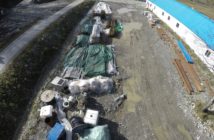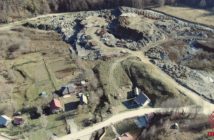Podgorica, 17 November 2010 – Today MANS submitted its comments on the Draft Concession Agreement for the Construction of Dams on the Morača River to the Ministry of Economy. MANS has already submitted its comments on the project’s Draft Concession Act, the Draft Spatial Plan and its Strategic Environmental Impact Assessment.
Unfortunately, as with all of these previous documents, the Draft Concession Act is filled with ambiguities about the project and fails to answer a number of questions about its actual value and the motives of the Government of Montenegro for undertaking it in the first place.
Crucially, the Draft Agreement does not contain a precisely defined concession subject, while the annexes’ of the document reference technical solutions 1 and 2 but also leave open the possibility for alternatives (giving cause for suspicions that key elements of the project will be hammered-out in agreement with the future concession holder).
Such actions are in direct contradiction to the Law on Concessions, which specifically states that the concessionary act must contain clauses relating to the subject of the concession, its conditions, the nature of the concession and its length (none of which is defined in the given document).
Furthermore, the draft agreement doesn’t even define the minimal concession fee, even though the previously released concessionary act mentions a figure of 2% of annual electricity sales (again lending credibility to suspicions that even this might be revised in future negotiations with the concession holder). Similarly, the Draft Agreement does not contain a financial plan, which further violates the Law on Concessions.
In the comments that MANS submitted today, attention was also drawn to the worrying fact that in the Draft Agreement, the Ministry of Economy explicitly states that it does not guarantee the veracity of the technical documentation prepared by Montenegro’s main energy company (EPCG) – even though this was the data used in the tender itself.
Until a few months ago, the representatives of key ministries and governmental bodies were energetically convincing the public that the information in the documentation was credible (even though most of it hasn’t been released publicly). Now they don’t even want to stand behind that data. It is for this reason that MANS has requested that all relevant documents immediately be made public.
As far as the public is concerned, the Draft Agreement also envisages a confidentiality clause that requires the Ministry to keep specific information from the Concession Agreement. In this way, if this clause is enacted, the public will be deprived of key information that would show the state interest in submerging a significant portion of the country’s territory.
From the above, it is clear that the responsible Ministry is persevering in its attempts to minimize public participation in the decision to build dams and hydropower stations on the Morača – a project that stands to permanently transform northern Montenegro.
Some of the main characteristics of all documents produced by the Ministry responsible for this project, include: the absence of key economic indicators, unsustainable development scenarios, sketchy and contradictory plans and a vast amount of ambiguous formulations that leave substantial room for subsequent re-interpretations.
The adoption of the concession act and agreement in their current form would be equivalent to economic suicide, since Montenegro will surrender key natural resources under poorly defined terms. Future benefits for the public from this project are not established in any of the planned laws or agreements, all will depend on negotiations with the future concession holder.
Following the completion of the public consultation process it is still unclear whose interests the Minister of Economy Branko Vujović is actually representing, why the Law on Concessions has been repeatedly violated, why the public still does not have access to key details about the project and, above all, what the exact interests of the Montenegrin state are to enter into an undertaking of such a magnitude without clearly defined benefits accruing to its citizens.



